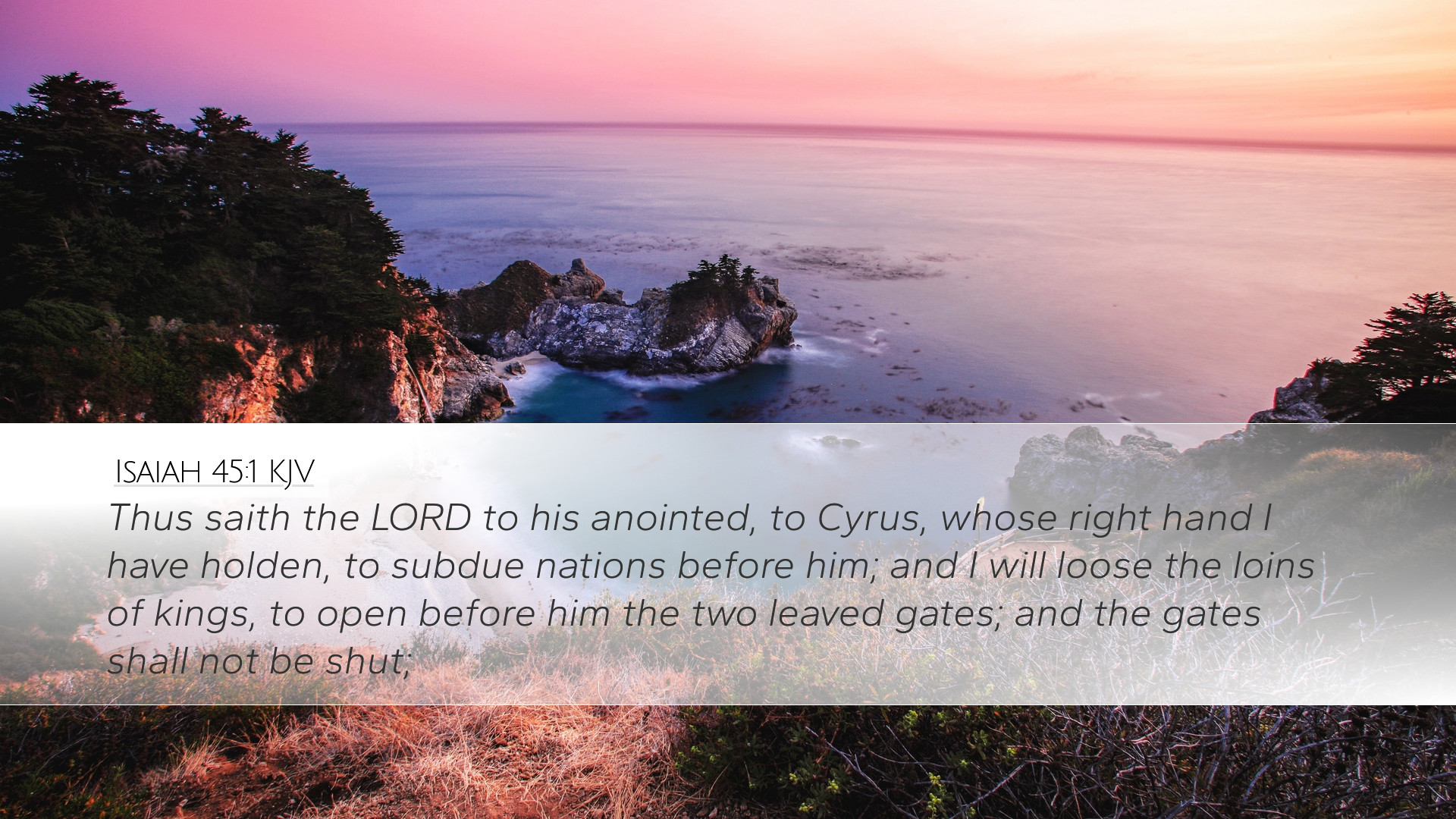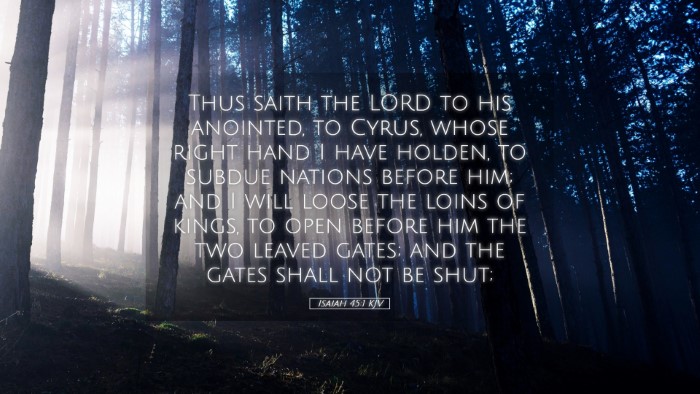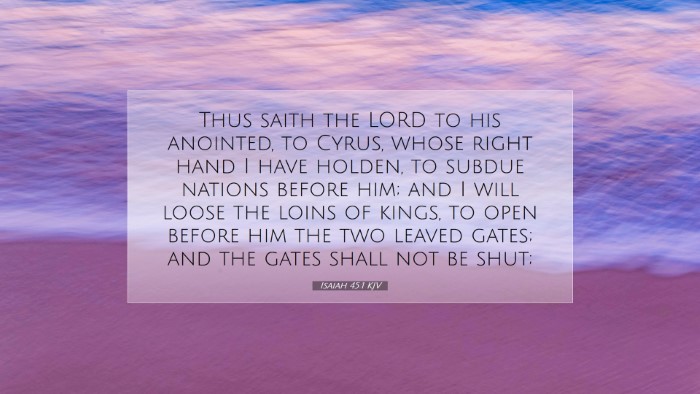Commentary on Isaiah 45:1
Isaiah 45:1 states: "Thus saith the Lord to his anointed, to Cyrus, whose right hand I have holden, to subdue nations before him; and I will loose the loins of kings, to open before him the two leaved gates; and the gates shall not be shut."
Introduction
This verse serves as a profound declaration from God regarding His plan and purpose for Cyrus, the king of Persia. This passage not only emphasizes God's sovereignty but also His intimate involvement in history and the lives of leaders.
Historical Context
The understanding of Isaiah 45:1 necessitates recognizing the historical backdrop of Israel's exile and the rise of Cyrus. God raised Cyrus to be an instrument for the deliverance of His people, which signifies a pivotal moment in biblical history.
Analysis of Key Phrases
-
"Thus saith the Lord":
This phrase signifies divine authority and the importance of the message that follows. It indicates that what follows is a pronouncement of God Himself.
-
"to his anointed":
In this context, 'anointed' refers to Cyrus as God's chosen instrument. Matthew Henry notes that although Cyrus was a pagan ruler, God anointed him for His purposes, demonstrating that God's sovereignty extends beyond Israel.
-
"whom I have holden":
Here, God asserts His direct involvement in Cyrus's success, indicating that it is God who equips and empowers leaders according to His will.
-
"to subdue nations before him":
This phrase speaks to the military conquests and authority Cyrus would have over other nations. Albert Barnes emphasizes that it clearly reveals God's intent to make Cyrus a great leader.
-
"I will loose the loins of kings":
This metaphor indicates the weakening of the kings and rulers who oppose Cyrus, demonstrating divine intervention in political affairs. Adam Clarke suggests that it symbolizes the terror and panic which God's intervention will cause among rulers against Cyrus.
-
"to open before him the two leaved gates":
This is a vivid imagery of access and opportunity provided by God. These 'gates' symbolize barriers and challenges that would be removed. Matthew Henry explains that this metaphorical expression prompts the reminder that God’s plans cannot be thwarted.
-
"and the gates shall not be shut":
The assurance that gates will remain open assures the safety and success of Cyrus’s missions. It implies that nothing will obstruct Cyrus from fulfilling the divine purpose set before him, reinforcing God's control over earthly circumstances.
Theological Implications
This verse profoundly reflects on God's sovereignty over nations and rulers. It challenges the notion that God only works through Israelite leaders. Instead, God’s purposes often transcend Israel and include broader implications for humanity. It speaks of God’s ability to raise up and bring down authorities in alignment with His divine plans.
Furthermore, this chapter and verse reinforces the concept that God's plans will be fulfilled, often in ways we do not expect. The Anointed One—Cyrus—is a reminder of how God can use anyone and anything to accomplish His divine will.
Application for Today
The implications of Isaiah 45:1 are significant for modern readers and leaders. The text compels us to trust in God's sovereignty in times of political instability or personal uncertainty. It encourages leaders to recognize their roles as instruments of God's purpose, even in challenging circumstances.
For pastors, this verse serves as a reminder that God can use those we least expect. For theologians and scholars, it invites deeper exploration into the way God operates across history, often placing individuals in positions to fulfill His redemptive plans. It urges a reflection on how we view power, authority, and God's hand in history.
Conclusion
Isaiah 45:1 remains a profound testament to God's unmatched sovereignty, His purpose in history, and His power to utilize anyone for His divine mission. This clear declaration serves as both a historical marker and a theological foundation for understanding God's continual involvement in the affairs of humanity.


